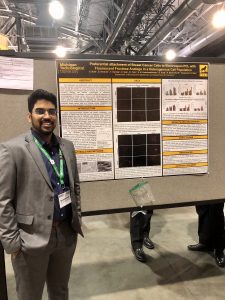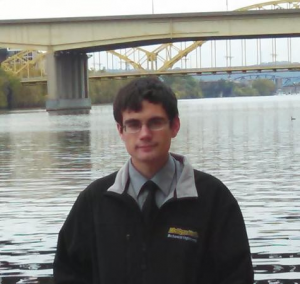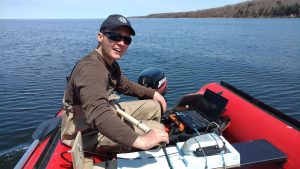Advancement to candidacy is a major milestone for doctoral students. PhD students who have advanced to candidacy are deemed to have completed all formal requirements of their program, except the dissertation. Advancement to candidacy is an acknowledgment that the student is ready to undertake independent dissertation research and has the potential to successfully complete their PhD program. Formal requirements vary by program, they generally take two to three years after starting the program and include coursework, qualifying exams, and research proposal. To celebrate this milestone, the Graduate School at Michigan Tech has introduced a new tradition to recognize, applaud and celebrate doctoral students who attain this feat.
This new tradition will take the form of a ceremony that brings together candidates, their advisors and their families in celebration of students who have advanced to this stage in their studies. Candidates will be presented with certificates at the ceremony.
Commenting on this new tradition, Graduate School Dean Pushpa Murthy said, “The advancement to candidacy is a major milestone in PhD programs, it is an acknowledgment by the program that the PhD student has acquired the necessary advanced knowledge of the subject and demonstrated the ability to conduct research necessary for a dissertation.”
To be eligible for participation in this ceremony, doctoral students should have submitted the Petition to Enter Candidacy form. This form is submitted once the student has fulfilled the following requirements:
- Submitted an approved degree schedule • Completed all relevant courses and course credits
- Completed Basic and Advance RCR Training
- Passed qualifying exams
- Passed research proposal exams
- Formed an advisory committee
Planning for the debut ceremony, which is scheduled for Feb. 26, is ongoing. More information about the new tradition and ceremony will be coming soon.







